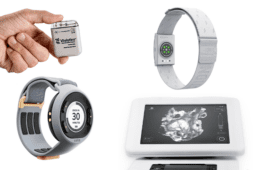DJO Global has announced the launch of the Empi Phoenix, an electrical stimulator designed to help simplify treatment of muscle atrophy before and after surgery for total knee replacement or ACL repair.
“Addressing muscle atrophy is a real need prior to and during rehabilitation from knee surgery, and the Empi Phoenix is an innovative, simple way for patients to engage with that rehab from the comfort of home,” said Mike Mogul, President and CEO of DJO. “We are very excited to offer this new therapy option to surgeons, therapists and patients.”
With more than 600,000 knee replacements and more than 100,000 ACL reconstruction surgeries performed each year in the U.S. alone, according to the American Academy of Orthopaedic Surgeons, physicians and patients alike are growing more interested in finding ways to expedite recovery, reduce pain and maximize post-surgical outcomes.
“This new method of delivering Neuromuscular Electrical Stimulation (NMES) to my patients is comparable to standard physical therapy in helping them recover from knee replacement surgery,” noted Dr. Michael Levine, an orthopedic surgeon and lead researcher of a recent clinical trial on the effectiveness of electrical muscle stimulation post-operatively. “When combined with traditional physical therapy, the Empi Phoenix creates an excellent scenario for recovering patients.”
The Empi Phoenix, a prescription medical device, helps patients during rehab by offering simple and effective electrotherapy treatments across the recovery cycle. In addition to its uses in combating disuse atrophy and increasing range of motion, the Phoenix also offers treatments to help manage pain and reduce swelling. The device can even help prepare patients prior to surgery by helping to treat muscle atrophy in the muscles supporting the joint. The Empi Phoenix received FDA 510(k) clearance in May of this year.
Dr. Levine’s year-long study, which was recently published in Orthopedics Today, showed that patients who receive post-op neuromuscular electrical stimulation (NMES) therapy achieved equivalent outcomes in certain key strength and functional measures as patients who received standard post-op physical therapy. Other recent studies have shown that patients who receive post-op NMES therapy in addition to standard physical therapy achieved improved performance in similar key measures, further supporting the impact of NMES therapy.
For more information visit www.DJOglobal.com.




